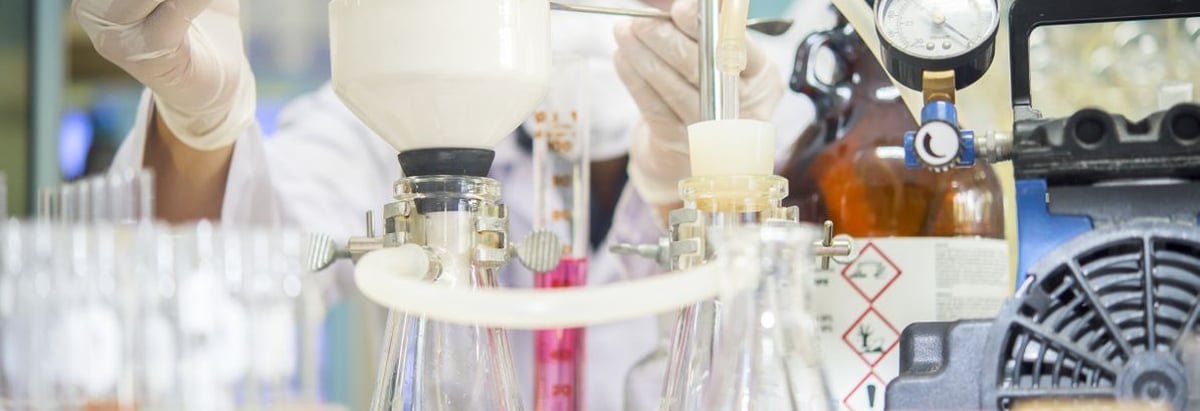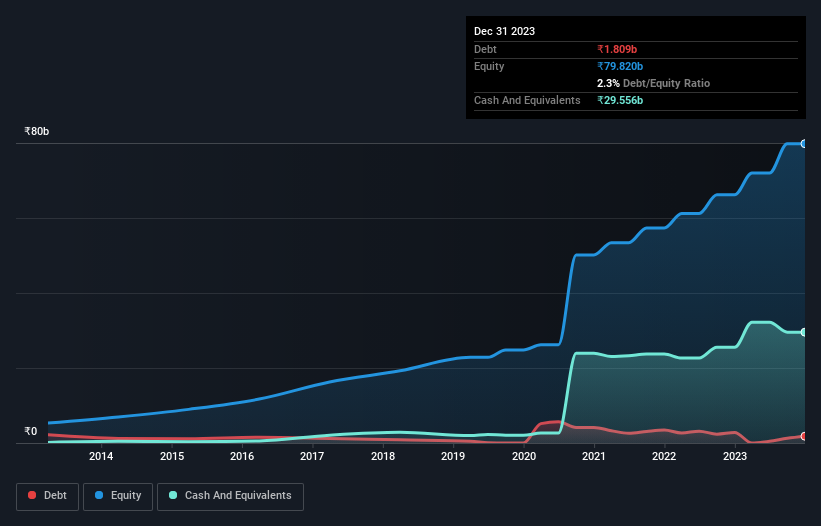Does PI Industries (NSE:PIIND) Have A Healthy Balance Sheet?

Howard Marks put it nicely when he said that, rather than worrying about share price volatility, 'The possibility of permanent loss is the risk I worry about... and every practical investor I know worries about.' When we think about how risky a company is, we always like to look at its use of debt, since debt overload can lead to ruin. We can see that PI Industries Limited (NSE:PIIND) does use debt in its business. But the real question is whether this debt is making the company risky.
Why Does Debt Bring Risk?
Debt assists a business until the business has trouble paying it off, either with new capital or with free cash flow. Part and parcel of capitalism is the process of 'creative destruction' where failed businesses are mercilessly liquidated by their bankers. However, a more usual (but still expensive) situation is where a company must dilute shareholders at a cheap share price simply to get debt under control. Having said that, the most common situation is where a company manages its debt reasonably well - and to its own advantage. When we examine debt levels, we first consider both cash and debt levels, together.
View our latest analysis for PI Industries
How Much Debt Does PI Industries Carry?
You can click the graphic below for the historical numbers, but it shows that PI Industries had ₹1.81b of debt in September 2023, down from ₹2.81b, one year before. But on the other hand it also has ₹29.6b in cash, leading to a ₹27.7b net cash position.

How Healthy Is PI Industries' Balance Sheet?
According to the last reported balance sheet, PI Industries had liabilities of ₹18.6b due within 12 months, and liabilities of ₹2.89b due beyond 12 months. Offsetting these obligations, it had cash of ₹29.6b as well as receivables valued at ₹16.8b due within 12 months. So it can boast ₹24.9b more liquid assets than total liabilities.
This short term liquidity is a sign that PI Industries could probably pay off its debt with ease, as its balance sheet is far from stretched. Simply put, the fact that PI Industries has more cash than debt is arguably a good indication that it can manage its debt safely.
Also positive, PI Industries grew its EBIT by 27% in the last year, and that should make it easier to pay down debt, going forward. There's no doubt that we learn most about debt from the balance sheet. But ultimately the future profitability of the business will decide if PI Industries can strengthen its balance sheet over time. So if you're focused on the future you can check out this free report showing analyst profit forecasts.
Finally, a business needs free cash flow to pay off debt; accounting profits just don't cut it. While PI Industries has net cash on its balance sheet, it's still worth taking a look at its ability to convert earnings before interest and tax (EBIT) to free cash flow, to help us understand how quickly it is building (or eroding) that cash balance. Over the most recent three years, PI Industries recorded free cash flow worth 59% of its EBIT, which is around normal, given free cash flow excludes interest and tax. This cold hard cash means it can reduce its debt when it wants to.
Summing Up
While we empathize with investors who find debt concerning, you should keep in mind that PI Industries has net cash of ₹27.7b, as well as more liquid assets than liabilities. And we liked the look of last year's 27% year-on-year EBIT growth. So we don't think PI Industries's use of debt is risky. There's no doubt that we learn most about debt from the balance sheet. However, not all investment risk resides within the balance sheet - far from it. For example - PI Industries has 1 warning sign we think you should be aware of.
Of course, if you're the type of investor who prefers buying stocks without the burden of debt, then don't hesitate to discover our exclusive list of net cash growth stocks, today.
New: Manage All Your Stock Portfolios in One Place
We've created the ultimate portfolio companion for stock investors, and it's free.
• Connect an unlimited number of Portfolios and see your total in one currency
• Be alerted to new Warning Signs or Risks via email or mobile
• Track the Fair Value of your stocks
Have feedback on this article? Concerned about the content? Get in touch with us directly. Alternatively, email editorial-team (at) simplywallst.com.
This article by Simply Wall St is general in nature. We provide commentary based on historical data and analyst forecasts only using an unbiased methodology and our articles are not intended to be financial advice. It does not constitute a recommendation to buy or sell any stock, and does not take account of your objectives, or your financial situation. We aim to bring you long-term focused analysis driven by fundamental data. Note that our analysis may not factor in the latest price-sensitive company announcements or qualitative material. Simply Wall St has no position in any stocks mentioned.
About NSEI:PIIND
PI Industries
An agrisciences company, engages in the manufacture and distribution of agrochemicals in India, rest of Asia, North America, Europe, and internationally.
Excellent balance sheet average dividend payer.
Similar Companies
Market Insights
Community Narratives




